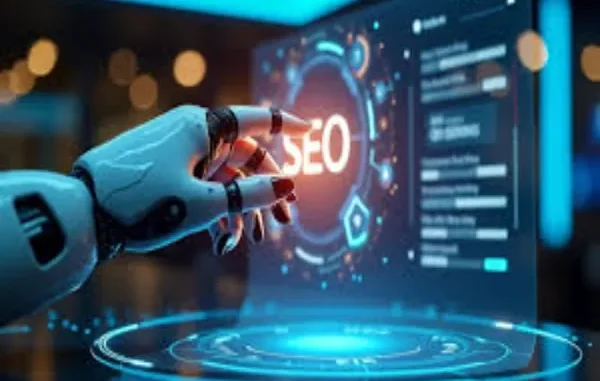
There are many ways that we search online. It might be a voice-activated search on your phones. Or you typed in a detailed phrase like “best budget laptop for students that lasts long.” Or you even uploaded a photo to find a similar product.
Search today doesn’t look like it did even five years ago. That’s because AI is changing how search engines understand our needs. Instead of just matching words, AI looks at the bigger picture of link building—intent, context, etc.
For anyone who creates content or runs a business, this means SEO is evolving. But here’s the good news: if you focus on genuinely helping people, AI-powered search is more likely to reward you.
Beyond keywords
Back in the day, SEO was mostly about stuffing the right keywords into your website. Now, it’s about solving real problems.
Say someone searches “healthy dinner recipes for kids who hate vegetables.” The search engine isn’t just looking for those exact words. It’s figuring out that this parent needs simple, tasty recipes where veggies are hidden or made appealing.
So instead of writing content that just repeats phrases, think about what the person behind the search truly needs. That’s how you’ll stand out.
Personalized search
One of the biggest shifts AI brings is personalisation. Search results will not appear alike for everyone, even if the search prompt is the same. The results depend on your location, your past behaviour, and sometimes even your interests.
This means broad and generalised content for SEO is not enough. The future is about tailoring content to specific audiences and scenarios. Instead of chasing a single top keyword, you’ll need to cover topics in-depth so AI can serve the right part of your content to the right person at the right time.
Conversational and multimodal queries
AI also makes search more natural. People are typing or speaking questions in full sentences, like they’re talking to a friend. On top of that, they’re using images and voice commands alongside text.
For example, someone could take a photo of a broken gadget and ask, “How do I fix this?” Or ask a smart speaker, “What’s the best way to save money on groceries this month?”
This is where businesses need to adapt. Your content should answer questions in a conversational tone, anticipate follow-ups, and use visuals where they help explain things better.
Smart SEO strategies
AI can also help you behind the scenes. It can group related keywords, show you content gaps, or even suggest pages to update.
Instead of writing blindly, you can focus on the areas that will bring real results. It’s like having a data-powered assistant who points you in the right direction, while you decide how to take action.
Content that feels human
AI is getting better at spotting what’s useful and what’s just filler. What works now is content that feels lived and real. That could be:
- Sharing a personal story of how you solved a problem
- Showing actual photos or examples
- Breaking things down into clear steps
- Giving honest tips, including what didn’t work
AI writing tools can be super handy for brainstorming or drafting. They save time. The best approach is to use AI as a starting point, then add your own voice, examples, and stories. That’s what makes your content stand out in a sea of sameness.
Getting ready for the future
Here are some simple steps you can follow to utilise SEO better:
- Know your audience and their pain points
- Create content clusters (one big guide plus smaller supporting articles)
- Keep your site fast and mobile-friendly
- Use headings, FAQs, and schema to structure content clearly
- Refresh old pages with new insights and examples
- Add visuals, tools, or checklists that give extra value
- Let AI help you brainstorm, but always add your human touch
AI is not here to replace SEO. It’s here to reshape it. Search is becoming smarter, more conversational, and more focused on giving people real value.
If you write content that helps, teaches, or solves a problem genuinely, you’ll always be in a good spot. SEO in the future will not be able to trick algorithms. So it will generate leads and bring results by connecting with people and letting AI do the heavy lifting in the background.
Leave a Reply